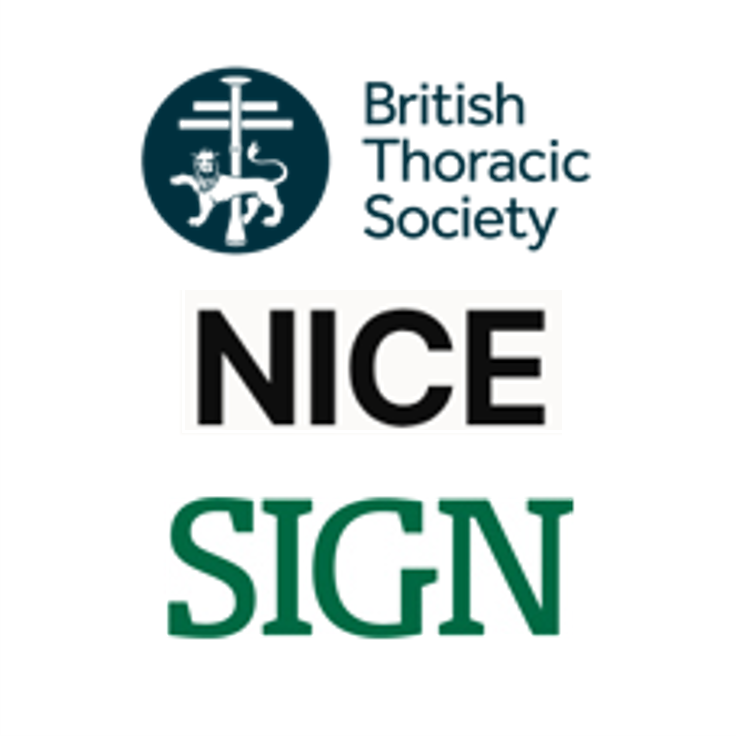Asthma: diagnosis, monitoring and chronic asthma management (SIGN 245)
Current Status
This guideline was published in 2024 and replaces parts of SIGN 158: British guideline on the management of asthma and NICE guideline 80. It will be considered for review if there is new evidence that is likely to change the recommendations.
This is a new collaborative guideline developed jointly by British Thoracic Society (BTS), National Institute for Health and Care Excellence (NICE) and Scottish Intercollegiate Guidelines Network (SIGN).
The joint guideline was launched at the BTS 2024 Winter Meeting where the background, development and implementation of the guideline is explored with healthcare professionals. You can watch the video here.
BTS hosted webinars in March 2025 on managing asthma for children and young people and managing asthma for adults. You can access these here.
Summary
Asthma is a common lung condition. In the UK, around 5.4 million people have asthma, which is about eight in every 100 people. Symptoms include breathlessness, coughing, wheezing and tightness in the chest.
This guideline focuses on:
- Assessment and diagnosis of asthma in adults and children
- Pharmacological management
- Monitoring control, self management and decreasing maintenance therapy
- Asthma in pregnancy and breastfeeding.
Non-pharmacological management, difficult and severe asthma, management of acute asthma and occupational asthma are covered in SIGN 158: British guideline on the management of asthma.
The guideline is part of the asthma pathway, developed by BTS, NICE and SIGN, which links to tools, resources and information, and has been designed to support healthcare professionals in making accurate diagnoses, promoting good practice, and providing effective, personalised treatment to control and prevent acute asthma attacks.
To support implementation planning, a Resource Impact Template has been added containing Scottish populations and agenda for change payscales.
Who it's for
The clinical guideline will be of interest to:
- healthcare professionals in primary care and the community secondary care and tertiary asthma services
- commissioners and providers
- people with suspected or diagnosed asthma, their families and carers
How this guideline was developed
This guideline was developed jointly by the British Thoracic Society (BTS), National Institute for Health and Care Excellence (NICE) and Scottish Intercollegiate Guidelines Network (SIGN) using NICE methodology. The recommendations in this guideline represent the view of BTS, NICE and SIGN, arrived at after careful consideration of the evidence available.
![]() Current < 3 years
Current < 3 years
978-1-909103-92-4

Guideline
Supporting Material
- Algorithm A: Objective tests for diagnosing asthma in adults and young people (aged over 16 years) with a history suggesting asthma (PDF)
- Algorithm B: Objective tests for diagnosing asthma in children aged 5 to 16 with a history suggesting asthma (PDF)
- Algorithm C: Pharmacological management of asthma in people aged 12 years and over
- Algorithm D: Pharmacological management of asthma in children aged 5 to 11 years (PDF)
- Algorithm E: Pharmacological management of asthma in children under 5
- Inhaled corticosteroid doses for the BTS, NICE and SIGN asthma guideline (PDF)
- Decision aid - asthma inhalers and climate change (PDF)
- Evidence (NICE)
- Launch event video (BTS)
- Asthma Guideline Webinars (BTS)